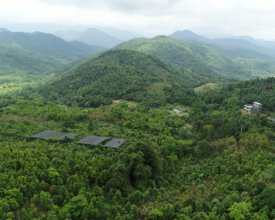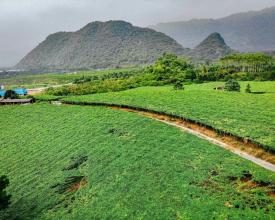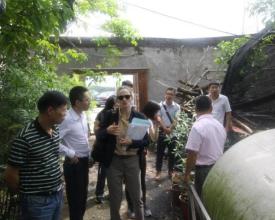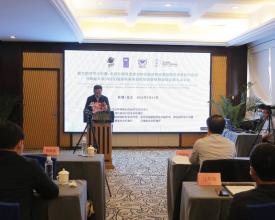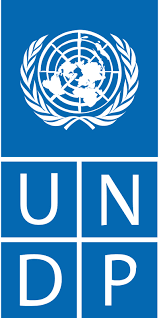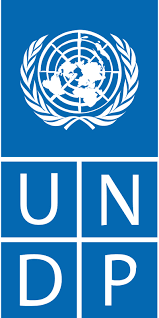
Developing and Implementing the National Framework on Access to and Benefit Sharing of Genetic Resources and Associated Traditional Knowledge
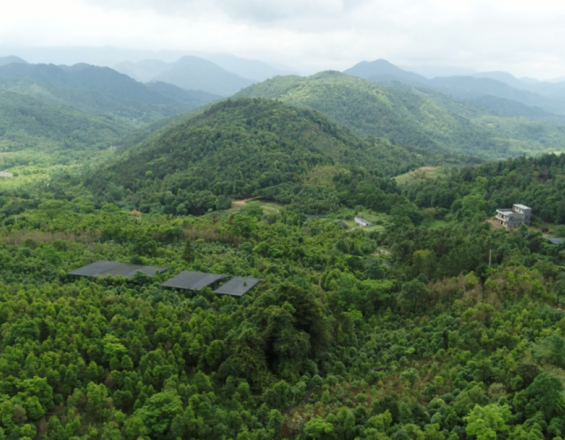
The 'Developing and Implementing the National Framework on Access to and Benefit Sharing of Genetic Resources and Associated Traditional Knowledge' project was a 5-year project designed to address the importance of biodiversity conservation and fulfilling the objectives of the CBD through its facilitation of the implementation of the Nagoya Protocol. Furthermore, as a cross-cutting issue, it was designed to support the conservation of globally significant biodiversity and sustainable use of the components of globally significant biodiversity.
The aim of the Project was to create the legal and administrative underpinnings, as well as the practical capacity in China to authorize and enable providers of genetic resources and associated traditional knowledge to share in the benefits from the utilization of those resources, in a manner that promotes improvement of the providers' social welfare and provides a motivation for conservation and efforts to maintain the sustainability of those resources.
Context
Challenges addressed
Boasting a rich genetic heritage, the importance of conserving this precious biodiversity and productively using this rich store of knowledge is recognized, but corresponding benefits haven’t always been shared with guardian communities.
Guangxi province ranks third in China for biodiversity, and also has abundant associated traditional knowledge. However, it lacks norms for ABS of genetic resources and associated traditional knowledge. Therefore, as one of the three pilot provinces of the National ABS Demonstration Project, Chrysantha and Siraitia grosvenorii demonstration sites for the ABS projects have been set up in Fangchenggang and Guilin, respectively. After more than six years of project facilitation, Guangxi addressed challenges by establishing an ABS system for biogenetic resources and related traditional knowledge, carrying out activities such as awareness-raising, negotiation and implementation of benefit-sharing agreements, and more.
Beneficiaries
Project design followed a participative approach and was careful to incorporate key institutional, civil society and NGO stakeholders throughout the consultation process. Primary beneficiaries include ethnic minorities, local communities, and women.
Location
Process
Summary of the process
Taken together, the various building blocks complement and mutually support each other.
Building Blocks
Improve the construction of the access and benefit-sharing system for biogenetic resources
Guangxi establishes a cross-sectoral coordination and cooperation mechanism and a stakeholder coordination mechanism. A management mechanism for access and benefit sharing of biogenetic resources is established under the comprehensive governance of the department in charge of ecology and environment and the supervision of the departments related to development and reform, agriculture and rural areas, forestry, etc. The project management is carried out at the provincial, municipal, and county levels so joint efforts can be made in ensuring the access and benefit-sharing of biological heritage resources.
Enabling factors
Experts from 31 universities, research institutes, and other relevant units, such as Minzu University of China, Chinese Research Academy of Environmental Sciences, Guangxi University, were hired to form a provincial technical expert team to provide consultation and technical support for the access and benefit-sharing of biogenetic resources in Guangxi.
Lesson learned
It is necessary to improve the construction of the access and benefit-sharing system for biogenetic resources.
Promote the implementation of benefit-sharing policy
On September 24, 2021, with the consent of the People's Government of Guangxi Zhuang Autonomous Region, the Measures for the Administration of Access to Biological Genetic Resources and Related Traditional Knowledge and Benefit Sharing (for Trial Implementation) was promulgated and implemented by the Department of Ecology and Environment of Guangxi Zhuang Autonomous Region, which becomes the first provincial regulation on access to biological genetic resources and related traditional knowledge and benefit-sharing in China.
Enabling factors
Access to biological genetic resources and related traditional knowledge and benefit-sharing in Guangxi have been standardized and legalized.
Lesson learned
The consent of governmental bodies and local communities are necessary to ensure success.
Conduct a baseline survey on biological genetic resources and related traditional knowledge
The project team investigated, collected, and summarized the protection, development, utilization, and benefit-sharing of 30 exemplar genetic resources in Guangxi, carried out case investigations and research on the development and utilization of traditional knowledge related to genetic resources of five ethnic minorities in Guangxi Zhuang, including Zhuang, Yao, Maonan, Mulao and Jing ethnic groups.
Enabling factors
The establishment of a database for biogenetic resources and their related traditional knowledge in Guangxi, together with the Survey on the Status Quo of Biogenetic Resources and Their Development and Utilization in Guangxi and the Management Requirements, Guangxi Traditional Knowledge Case Study Report and Guangxi Traditional Knowledge Cataloging Report.
Lesson learned
The provision of scientific guidance is required for the proper protection, development, utilization and sharing of biogenetic resources in Guangxi.
Protect biogenetic resources and related traditional knowledge
The protection for wild genetic resources has been formalized, and 20 protection sites for chrysantha have been constructed; guidance is provided for demonstration enterprises to expand the nursery of Siraitia grosvenorii and Camellia nitidissima, which cover an area of 2,000 square metres and 500 square metres respectively.
Enabling factors
The project helped to increase the area allocated for growing seedlings of Siraitia grosvenorii and Camellia nitidissima genetic resources, and planted Camellia nitidissima in the wild.
Lesson learned
Reducing the utilization of wild resources is key to project success.
Promote benefit-sharing between enterprises and local communities/residents
Guangxi negotiated and implemented agreements on access to genetic resources and related traditional knowledge and benefit-sharing of Siraitia grosvenorii and Camellia nitidissima in Guilin and Fangchenggang, promoting the signing of more than 10 benefit-sharing agreements between enterprises and farmers in demonstration areas through measures such as value-insured recovery, benefit sharing, technology training, and enhanced resource protection. From 2019 to 2021, the campaign benefited more than 5,000 farmers in the major producing areas of Siraitia grosvenorii and Camellia nitidissima, helping nearly 300 poor households escape poverty.
Enabling factors
From 2020 to 2021, the demonstration enterprise Guilin Monk Fruit Siraitia Grosvenorii Biotechnology Inc. has increased the returns from purchasing and recovering Siraitia grosvenorii by 50% year-on-year.
Lesson learned
It is necessary to negotiate and implement access and benefit-sharing agreements for genetic resources and associated traditional knowledge.
Holding activities to build capability and improve awareness
The ABS project has been widely promoted throughout Guangxi, with about 50 promotional activities, 20 training sessions and related meetings, and more than 10,000 participants online and offline, to help with Guangxi ABS legislation and benefit-sharing.
Enabling factors
These activities not only enhance the capacity building of relevant personnel, but also raise public awareness of biodiversity conservation and benefit-sharing.
Lesson learned
Public awareness of - and public support for - program activities ensures success.
Impacts
The Project had three inter-related and mutually complementary components, each with an associated outcome, that together are focused at addressing the barriers of (i) insufficient legal and institutional experience for the implementation of Access and Benefit Sharing considerations; (ii) sub-optimal stakeholder awareness and capacity to develop and implement national and local ABS norms; and (iii) limited capacity to regulate, oversee, promote and control bioprospecting and negotiation of viable ABS mechanisms. With respect to its three primary outcomes:
- Outcome 1, was directed at establishing the foundational ABS legal measures nationally and provincially;
- Outcome 2, was concerned with ABS institutional and professional capacity development (also reinforced through dependencies with implementation, learning by doing exercises); and
- Outcome 3, prioritized the conducting of practical pilots for the articulation and implementation of agreements and institutional arrangement in three provinces, including provincial and local legislation, implementation of a variety of ABS scenarios, negotiation of ABS agreements with small- and medium-sized enterprises for commercial and non-commercial purposes and undertaking six case studies, several of which involved contracts integrating Prior Informed Consent (PIC) and (Mutually Agreed Terms) MAT ABS concepts with communities.
Sustainable Development Goals
Story
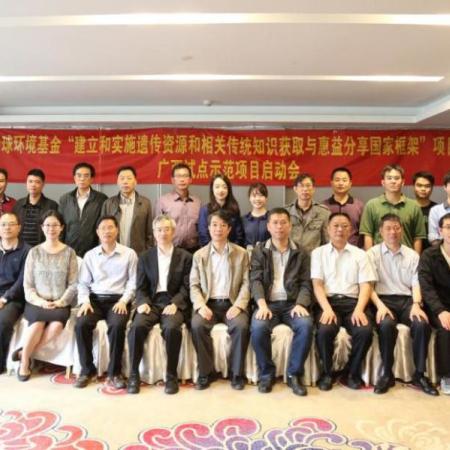
The project had three goals:
- Improve the construction of the access and benefit-sharing system for biogenetic resources
- Promote the implementation of benefit-sharing policy
- Conduct a baseline survey on biological genetic resources and related traditional knowledge
The project worked to improve the construction of the ABS system for biogenetic resources in Guangxi by establishing cross-sectoral and stakeholder coordination mechanisms and a management mechanism. Experts from 31 universities, research institutes, and other relevant units, such as Minzu University of China, Chinese Research Academy of Environmental Sciences, Guangxi University, were hired to form a provincial technical expert team to provide consultation and technical support.
On September 24, 2021, with the consent of the People's Government of Guangxi Zhuang Autonomous Region, the Measures for the Administration of Access to Biological Genetic Resources and Related Traditional Knowledge and Benefit Sharing (for Trial Implementation) policy was promulgated and implemented by the Department of Ecology and Environment of Guangxi Zhuang Autonomous Region, entailing the first provincial regulation on access to biological genetic resources and related traditional knowledge and benefit-sharing in China. It also signifies marks that access to biogenetic resources and related traditional knowledge and benefit-sharing in Guangxi has been standardized and legalized.
The project team investigated, collected, and summarized the protection, development, utilization, and benefit-sharing of 30 genetic resources in Guangxi, carried out case investigations and research on the development and utilization of traditional knowledge related to genetic resources of five ethnic minority groups in Guangxi, and established a database for biogenetic resources and their related traditional knowledge.
-------

